We all want our cats to live as long as possible, but it can be hard to watch them become seniors. Each cat will enter senior-hood in its own unique way. You may notice that your once-spry cat is having a hard time walking up the stairs, or that the laser pointer isn’t quite as interesting as a nap anymore. There’s no stopping nature’s clock, but there are some things you can do to make your cat’s life easier and to keep her feeling young at heart while she ages.
Is Your Cat a Senior? Here’s How to Tell!
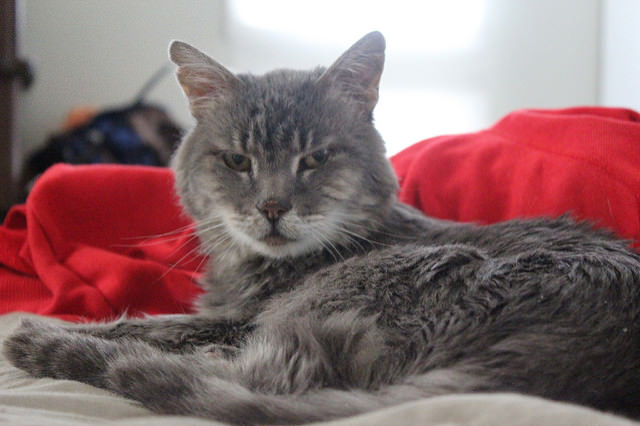
#1 – Schedule more frequent vet visits
Just like humans, cats become more vulnerable to illness as their bodies stop working the way they once did and their organs become taxed. While this is a natural part of the life cycle that can’t be stopped, scheduling more frequent visits with your veterinarian can help discover problems early. Early detection can help ward off some health problems before they get out of hand, lessen symptoms and pain with treatment, and help you develop an appropriate care plan. Many cat health experts recommend scheduling routine checkups every 6 months (instead of annually) once your cat becomes a senior.
8 Ways To Prepare For Your Cat’s Senior Years
What To Expect From Your Senior Cat’s Wellness Exam
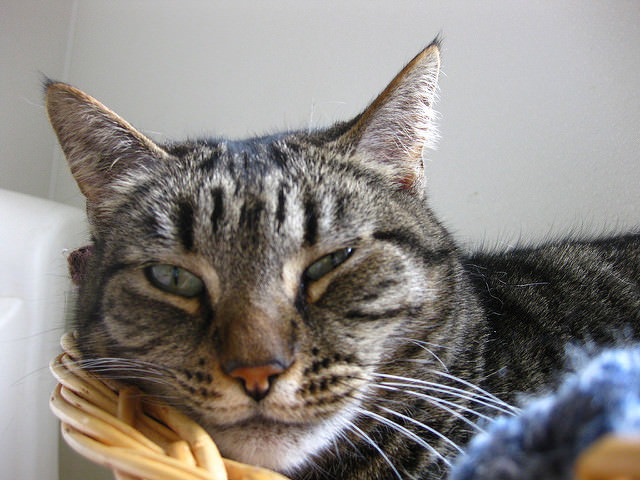
#2 – Engage your cat in ability-appropriate playtime
Many cats still enjoy play time as they get older, and engaging your cat in play time can play a large role in keeping her body and mind healthy and active. While your cat may still love to play, don’t expect her to run and pounce like she did in her younger days. With a senior cat, playtime may be as simple as dangling a wand toy above her and letting her paw at it while she lays on her back. Let her determine the pace and activity level she’s comfortable with.
6 Ways To Maintain Your Bond As Your Cat Becomes A Senior
10 Toys To Bring Out the Kitten In Your Senior Cat
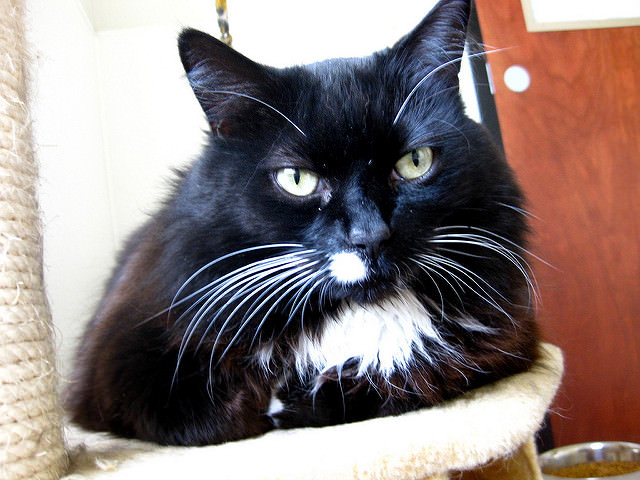
#3 – Consider a senior-specific diet
Talk to your veterinarian to see if switching your cat to a senior specific diet would benefit her life and health. Many foods designed for senior cats include ingredients that can address issues that are common in senior cats, like joint pain and urinary tract problems.
Ask A Vet: What Can I Do To Keep My Senior Cat Happy And Healthy?
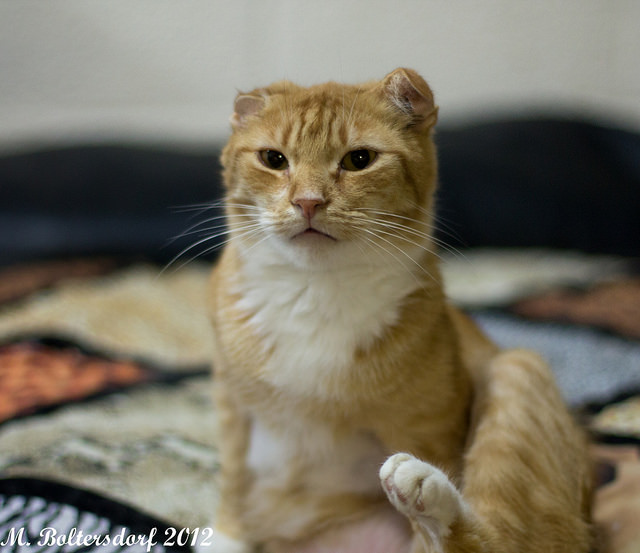
#4 – Make your home senior-friendly
You can help your cat feel her best by making sure your cat is able to get around the home without struggling. If your cat isn’t moving around so spryly anymore, take a look around your home and think about what you can do to make it easier for her to navigate. Is she able to safely reach her favorite napping spot? Can she access all of her resources (food, water, litter box, scratching post, etc.) without walking up or down stairs? If not, it’s time for a home makeover.
5 Reasons We Love, Love, LOVE Senior Cats!
#5 – Keep litter box accessible
Your cat’s litter box should be placed in an accessible location, of course, but the type of box may also matter once your kitty gets older. If your cat is having mobility challenges, switch to a litter box that has low sides that she’ll easily be able to step over.
6 Common Problems Senior Cat Owners Should Watch For
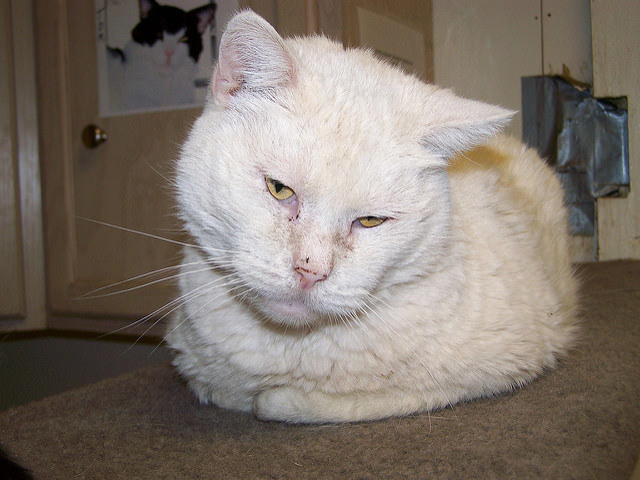
Related: What’s the Best Food for My Senior Cat?
#6 – Keep an eye on changes to body and behavior
Medical issues can arise very quickly for a senior cat, even if you’re vigilant about regular veterinary checkups. Keep an eye on your kitty and note any changes to her body or behavior. Some common changes are weight loss, a change in activity level, or a change in litter box habits. Noticing and addressing health issues quickly can help your cat live a longer and better life.
6 Reasons to Adopt a Senior Cat
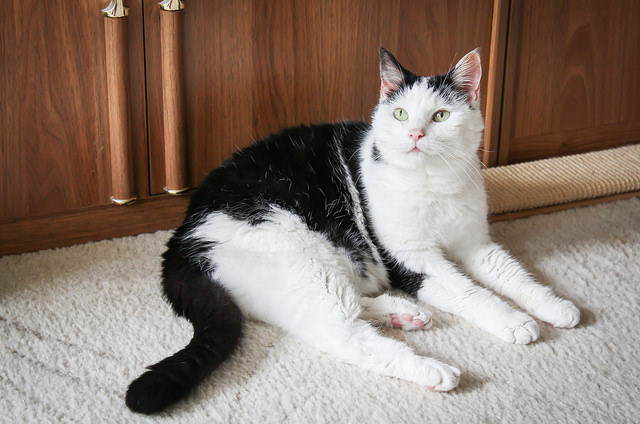
#7 – Disperse resources
If your house is large or multi-leveled, it’s important to make sure that your cat is able to access all of her resources easily. A cat who is experiencing joint pain, for instance, may choose to pee on the living room carpet rather than risk the pain of traveling down the basement stairs to the litter box. If possible, keep all of her resources on one level of the house, in relatively close proximity to her favorite hangout spot. If she’s still getting around well enough to wander your home, consider adding several resources throughout your home– a litter box on each floor, water bowls in several locations, etc. Giving your cat several options will mean she’ll never have to feel anxious about how to access one of her resources.
5 Important Ways To Help Your Senior Cat Live Longer And Better
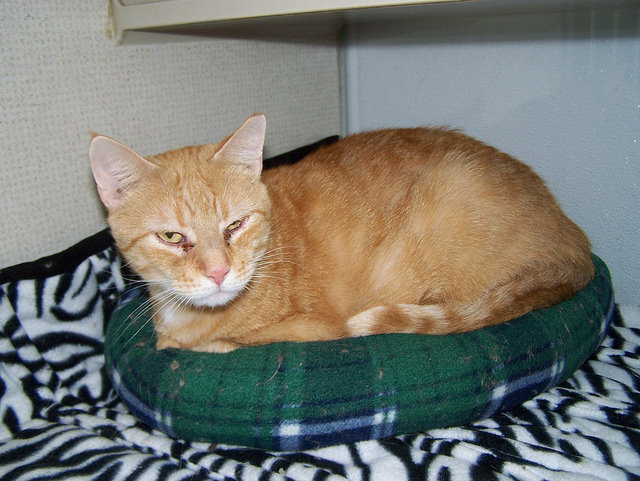
#8 – Nurture your special bond
As they become seniors, it becomes more apparent to us that our furry best friends won’t be around forever. This is the perfect time to nurture your special bond with your cat and make sure she knows exactly how much you care about her. How you’ll choose to nurture your bond will depend on your unique relationship with your cat and your respective personalities, but some ideas may include taking extra time to pet and cuddle, napping with your cat, or gently grooming her. You’ll never regret extra time you’ve spent with her.
